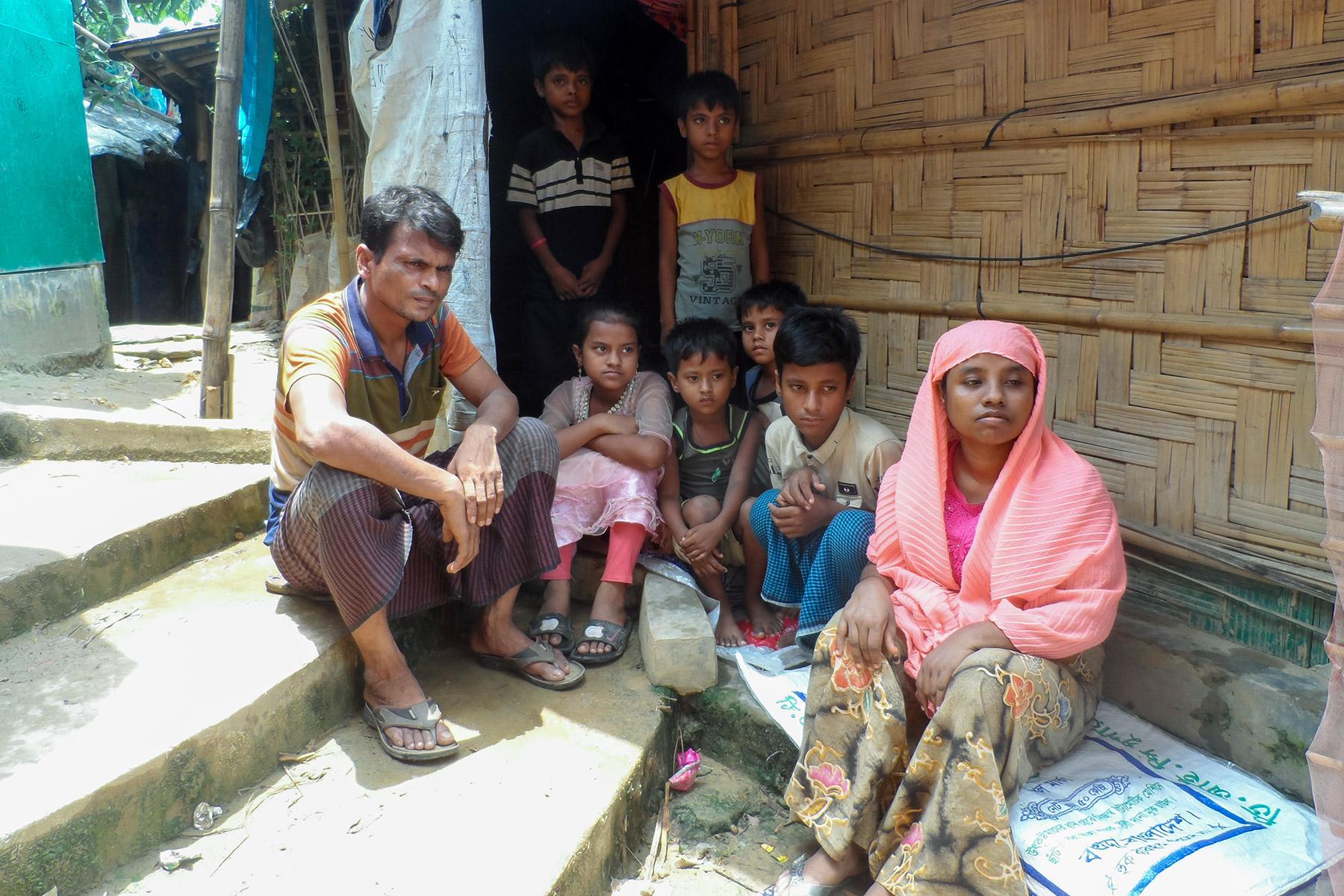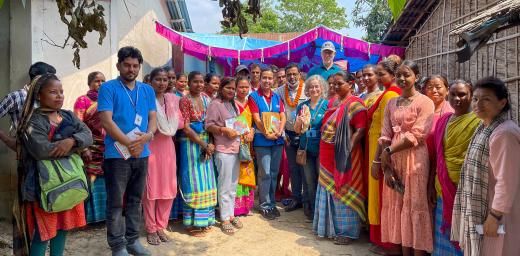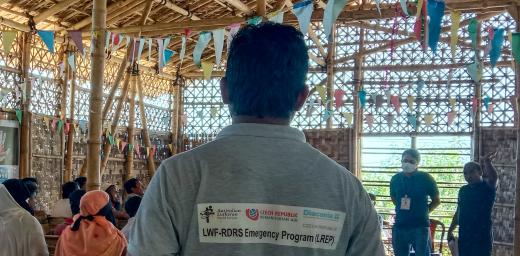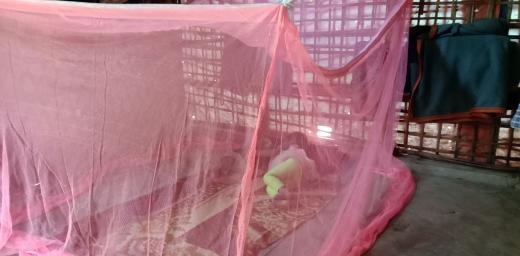(LWI) - “I could not eat or drink on the day of the incident. There was a lot of gun fire on the day. Even my house was also burnt,” says Rokiya Begum, a 30-year-old mother of six, living in Cox’s Bazar, Bangladesh.
After the military crackdowns in the north Rakhine state in Myanmar on 25 August 2017, Rohingya communities fled to Bangladesh for safety. Bangladesh opened its border with Myanmar and sheltered 750,000 Rohingya people on humanitarian grounds.
At that time, Cox’s Bazar, a beach town and tourist destination in Bangladesh became the world’s largest refugee camp. The Lutheran World Federation (LWF) and RDRS Bangladesh have been supporting communities affected by this emergency since January 2019. The LWF-RDRS Emergency Program provides humanitarian and livelihood resilience assistance for Rohingya refugees and host communities.
Rokiya and her husband, Rofiq Ahmed, 38 years old, came from Maungdaw township, Rakhine state in Myanmar, where he used to do farm work. They fled to Bangladesh in hopes of survival if not a chance for a better life. “Suddenly, they started firing,” Ahmed recalls. “We fled for our lives. There were also rapes and the whole area had been set on fire. The boatman took us to Bangladesh in exchange of gold ornaments. We came to Cox’s Bazar, then to the Rohingya camp from Cox’s Bazar. We are thankful to the government of Bangladesh. They gave us shelter, clothes, food, cooking ingredients and all other things.”
At the same time, Rokiya shares that life as a refugee is the less difficult option for the family and she misses her home country and neighbors.
Living in displacement is a challenge for all those who had to flee. Even so returning may be a more difficult choice according to Ahmed. “We will return to our country if sent officially. Ensuring security before we return is better for us. Otherwise, the situation might get worse.”
To address the needs of refugees like Rokiya’s family in a holistic approach, LWF programs provide opportunities and services that enable civic empowerment, improve quality of life, promote food security, protect the environment and foster economic empowerment.
Everyone has a right to seek safety – whoever they are, wherever they come from and whenever they are forced to flee. Refugees should be treated the same as foreign nationals if not nationals of a given country.
– Bhoj Raj Khanal, LWF Regional Hub Coordinator for Asia and the Pacific
“Everyone has a right to seek safety – whoever they are, wherever they come from and whenever they are forced to flee. Refugees should be treated the same as foreign nationals if not nationals of a given country,” says Bhoj Raj Khanal, LWF Regional Hub Coordinator for Asia and the Pacific. “LWF World Service continues to work in Bangladesh with our partners to ensure that this right is protected and secured by refugees until they are allowed safe return to their places of origin voluntarily and in a dignified manner.”






